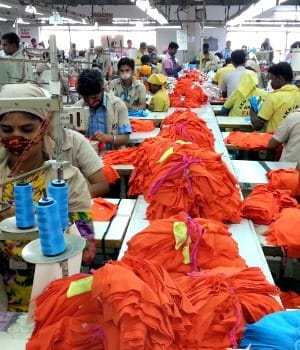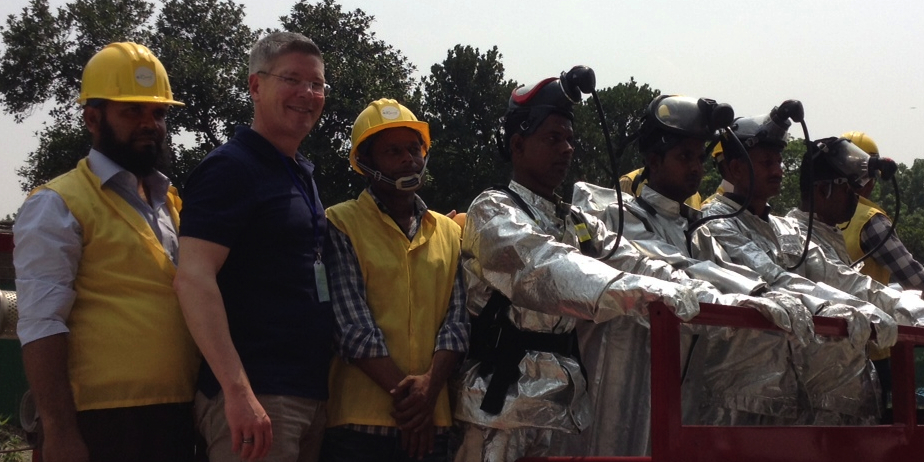Public opinion on multinational corporations is cold-hearted at best. Large firms with offshore factories and suppliers are seen as the fallacious result of unchecked globalisation. The main accusations are poor working conditions and social dumping, market monopolisation by pushing out of business many smaller firms, environmental costs due to the wide use of pollutants, and the peril of becoming excessively large and powerful in regard to governments.
The latter, in particular, may be true but it is not necessarily negative. Thanks to their private ownership large firms have faster internal procedures to bring about changes than some national governments. Many activists have already realised so and are targeting directly multinationals to influence regulations in a shorter period of time (Battilana, 2011). Then, in the developing world where bureaucracy and institutions may be slow and not efficient enough at enforcing regulations and the rule of law is weak, the so-criticised dominant position of multinationals may offer interesting roles to large corporations.
Following several fires and the Rana Plaza building collapse in Bangladesh in 2013, which killed over 1,100 garment workers (Solidarity Center, 2016), 29 multinational retail and apparel firms took safety compliance matters into their own hands. This group of multinationals that joined forces to improve the working standards in garment factories takes the name of the Alliance for Bangladesh Worker Safety (hereafter, the Alliance).
The Alliance exploits its reach and leadership on garment factories in Bangladesh to take up the role of filling the vacuum left by ‘weak’ institutions. The Alliance’s membership buys from approximately 700 garment factories that employ about 1.21 million workers in Bangladesh and it requires all of these factories to participate in its building safety audit, building remediation, and worker training and empowerment programmes. Failure to comply with one or more of these programmes results in suspension from the Alliance’s supplier base. As of September 2017, the Alliance had suspended 158 factories (more details can be found here).
In 2000, The Economist published an article highlighting the benefits that multinationals can bring to welfare in both developed and developing countries. Seventeen years later this article proved to be rather farsighted, in particular with respect to the multinationals need to “accept the responsibilities that go with size and wealth”. In an ever-more globalised world one of these responsibilities is generating positive changes in developing countries’ work environment that would be hard to achieve through the political process alone. So, multinational firms are increasingly adopting the roles of external standard-setting and enforcement in the absence of formal regulation enforcement (O’Rourke, 2014). The Alliance is a clear example.
Although the debate on whether large multinationals are positive or negative is still on, with both sides having more theoretical arguments and better empirical evidence to back up their claims, the growing significance of corporate social responsibility occurred recently may turn things in favour of large companies. Indeed, offshore multinationals can first lead by example and, second, play the role of promoters of corporate social responsible practices. Why is it so? Or, to put it in other words, why is it up to large private firms and not to the local government to step up and ensure the take up of corporate social responsible practices? To which it follows – why in developing countries and not developed ones?
Institutions in developing countries simply face tougher realities with less means than their counterparts in developed countries. When it comes to implementing a regulation they encounter two major limitations. First, limited capacity: institutions’ personnel may not be adequately trained and skilled to effectively put into practice the regulation, and may not have the technology or the infrastructures to do so. Second, limited enforcement: it may be difficult for the particular institution to monitor whether the regulation is properly applied due to qualified officers been easily bribed or the lack thereof. As a result regulations are badly if not at all enforced and otherwise preventable accidents occur.
Large firms step up and ensure that the law is enforced even in countries where there are weak and limited institutions. Rigorous analyses on the veracity of such premises are still lacking. However, one of the few studies that try to get some answers does not show promising results. The study compares Hewlett-Packard’s (HP) suppliers’ performance on its labour practice audits during a period in which HP implemented a supplier responsibility programme aimed at increasing compliance. The authors conclude that national context is a more important predictor of compliance than factors associated with HP’s programme are (Distelhorst et al. 2015). Perhaps this means that ventures like the Alliance may not work in other contexts.
Another equally important open question regards the repercussions on the sector (garment for the Alliance). Will the whole sector of garment factories comply with better working conditions now that the Alliance is setting the standards? In principle, external standard-setting and enforcement in weak institutional environments could spur a race to the top, in which compliance increases in firms beyond those directly targeted, and the sector benefits. It’s also possible that it could spur a race to the bottom, in which more production is moved to firms with worse conditions. Either way, there are plenty of implications for social welfare.
There are still many questions unanswered and the little research undergone does not seem conclusive for now – maybe the link between multinationals’ dominant position on a country and social benefits is not that straightforward after all. What is certain is that there is the possibility and perhaps we will be reading in a near future about multinationals being promoters of corporate social responsibility, fair pay, sustainable practices, and more transparent businesses in the developing world.








